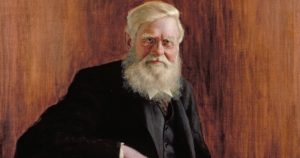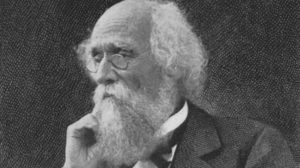
Darwinian


Fossil Friday: To Be or Not to Be Homo

Religion, Science, and Evolution: Confessions of a Darwinian Skeptic

The Outsider: Wallace’s Reputation in the Darwinian Era

Summer Seminars on Intelligent Design Expand Students’ Intellectual Horizons

Why Evolution Is More Certain than Gravity
Intelligent Design and the Artist’s Soul (Part 3)
Editor’s Note: This is crossposted at Professor Scot McKnight’s Beliefnet blog, Jesus Creed. The first post in this series is found here, and the second here.
The Origin of Beauty
Benjamin Wiker and Jonathan Witt’s masterful book A Meaningful World: How the Arts and Sciences Reveal the Genius of Nature gives the following illustration of how modern scientific reductionists treat nature and the arts:
Imagine hearing the following account of one of Wolfgang Amadeus Mozart’s symphonies: ‘We have been able to prove that this particular symphony is actually reducible to a series of notes that happen to be played both at the same time in chords and one after another, creating a string of disturbances in the air caused by different frequencies. We realize, of course, that these disturbances cause further disturbances in the audience, due in part to the presence of Earth’s particular atmosphere and in part to the effect such disturbances have on the apparatus of the ear as transmitted by neurons to the brain–so disturbing, in fact, that some break into voluntary tears, remarking that they seemed to be hearing the very harmonies of heaven. Happily, we now know that there is nothing more to Mozart’s work in particular and to music in general than mere notes, themselves reducible to waves disturbing air.’
When Christian intellectuals hear such things, their general response is to think that they can have their Darwinian cake and merely scrape off the reductionist icing. But Darwinism, if I may continue the strained metaphor, is, it turns out, a layered cake with icing all throughout.
Read More ›Darwin’s Theory and Cancer
Darwinist blogger Orac recently took issue with my observation that Darwin’s theory plays no important role in medicine. Orac, a surgical oncologist, insisted that Darwin’s theory is very helpful in modern cancer research. He wrote: Now, using the principles of evolution, Maley et al have found one potential indicator of which patients with Barrett’s esophagus will progress to cancer and which will not. Basically, they adapted a diversity measure from ecology and evolution known as the Shannon diversity index. I’m going to have to leave it to my evolutionary biology colleagues to tell me more whether this was appropriately done, but for purposes of this paper the authors treated each sample ot as a single organism but as thousands of Read More ›
Alex Rosenberg’s “Darwinian Reductionism” Under Fire
The May-June 2007 issue of American Scientist contains John Dupré‘s review of Darwinian Reductionism: Or, How to Stop Worrying and Love Molecular Biology by Alex Rosenberg. Dupré fears that Rosenberg’s adherence to strict physicalist reductionism (“Darwinian Reductionism”), where “everything is ultimately determined by what happens at the physical level–and that this entails that the mind is ‘nothing but’ the brain,” is based upon a failure to understand why most philosophers of biology have abandoned such reductionism rather than a new revelation. As Dupré points out, most philosophers have abandoned this view because, among other reasons, genes have a “many/many” relationship with phenotype. More specifically, his [Rosenberg’s] portrayal of the genome as a program directing development, which is the centerpiece of Read More ›





































